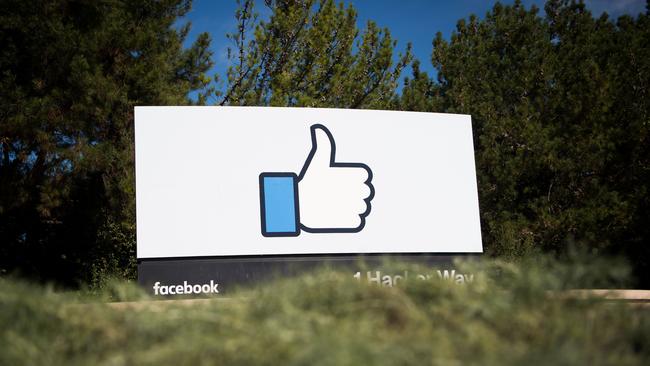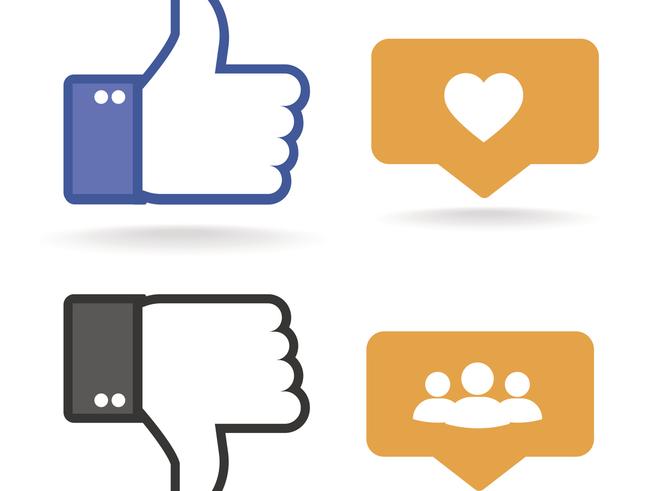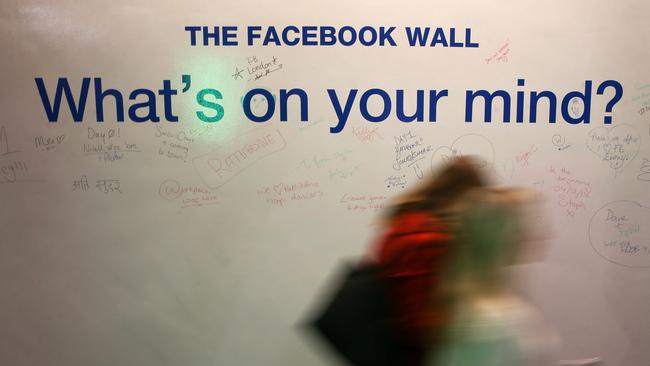Facebook scientists pen blog to hit back at claims the social media giant is ‘ripping apart the social fabric’
IF SCROLLING through your Facebook feed ever makes you feel bad, the tech giant wants you to know it isn’t to blame. No, the real culprit is you, it says.

IF SOCIAL media can sometimes get you feeling a bit jealous, lonely, or just a bit down, then you’re doing it wrong.
That’s according to Facebook’s Director of Research, David Ginsberg, and the company’s Research Scientist, Moira Burke.
Rather conveniently for Facebook, if you don’t want the social media platform to make you feel bad, you need to be a more active participant.
A growing number of experts have warned about the potential harm to mental health caused by social media overuse, particularly among teens and young mothers, and consequently advocate for a reduction in screen time. Unsurprisingly, Facebook has a different solution.
“According to the research, it really comes down to how you use the technology,” Mr Ginsberg wrote in a recent Facebook blog post.
“For example, on social media, you can passively scroll through posts, much like watching TV, or actively interact with friends — messaging and commenting on each other’s posts. Just like in person, interacting with people you care about can be beneficial, while simply watching others from the sidelines may make you feel worse.”
The post highlighted research by the likes of American psychologists Jean Twenge who points to an increase in teen depression associated with increased technology use and Sherry Turkle who claims the ubiquity of mobile phones has meant relationships are often now about being “alone together”. Both report the adverse effects of the growing trend.
However there are two sides to every story, and the authors also cite researchers who believe claims about the detrimental mental health effects of social media are largely anecdotal and dismissive of the benefits.

In the lengthy post, the authors detail how Facebook is trying to protect users from the perceived pitfalls of the site and improve user interactions.
“We know that a person’s health and happiness relies heavily on the strength of their relationships,” they wrote. “We’re working to make Facebook more about social interaction and less about spending time.”
It’s hard not to note the timing of the blog post. It comes just days after a former Facebook executive told an audience that the social media was “ripping apart” society.
Chamath Palihapitiya, who joined Facebook in 2007 and later became its vice president for user growth, said that he and the company’s founders “have created tools that are ripping apart the social fabric of how society works.”
The engineer-turned-investor — who won’t let his kids have Facebook profiles — said he felt “tremendous guilt” for the impact Facebook has had on the world.
THE TWO FACES OF FACEBOOK
In an apparent bid to be more socially conscious, Facebook is keen to point out the steps it is taking to protect its user’s mental health including suicide prevention tools and a button to limit the amount of content they see from ex-partners.
“We demote things like clickbait headlines and false news, even though people often click on those links at a high rate,” the post said.
“We optimise ranking so posts from the friends you care about most are more likely to appear at the top of your feed because that’s what people tell us in surveys that they want to see.
“We want Facebook to be a place for meaningful interactions with your friends and family — enhancing your relationships offline, not detracting from them,” the Facebook researchers wrote.
Which is all well and good, but while Facebook promotes this virtuous image of being a place of meaningful social connection, it is simultaneously working to find ways to exploit our interactions for profit.
Let’s not forget the leaked document that surfaced in May this year which essentially detailed how the company could exploit the moods and insecurities of teenagers using the platform for the potential benefit of advertisers.
The document outlined how by monitoring posts, comments and interactions on the site, Facebook can figure out when people as young as 14 feel “defeated”, “overwhelmed”, “stressed”, “anxious”, “nervous”, “stupid”, “silly”, “useless”, and a “failure”. The internal document quickly drew criticism and prompted fears the so-called sentiment analysis could be used by advertisers to target young Facebook users when they are potentially more vulnerable.

In 2012 Facebook conducted a week-long experiment that altered the algorithms it used determine which status updates appeared in the news feed of nearly 700,000 randomly selected users based on the post’s emotional content.
Posts were determined to be either negative or positive and Facebook wanted to see if it could make the selected group sad by showing them more negative posts in their feed. It deemed it could.
The results were published in a scientific journal but Facebook was criticised by those concerned about the potential of the company to engage in social engineering.
The personal data and behavioural insights you willing offer up to Facebook via continued engagement with the platform serves as the company’s lifeblood. So simply put, Facebook cares about you — as long as you’re actively using its website.



